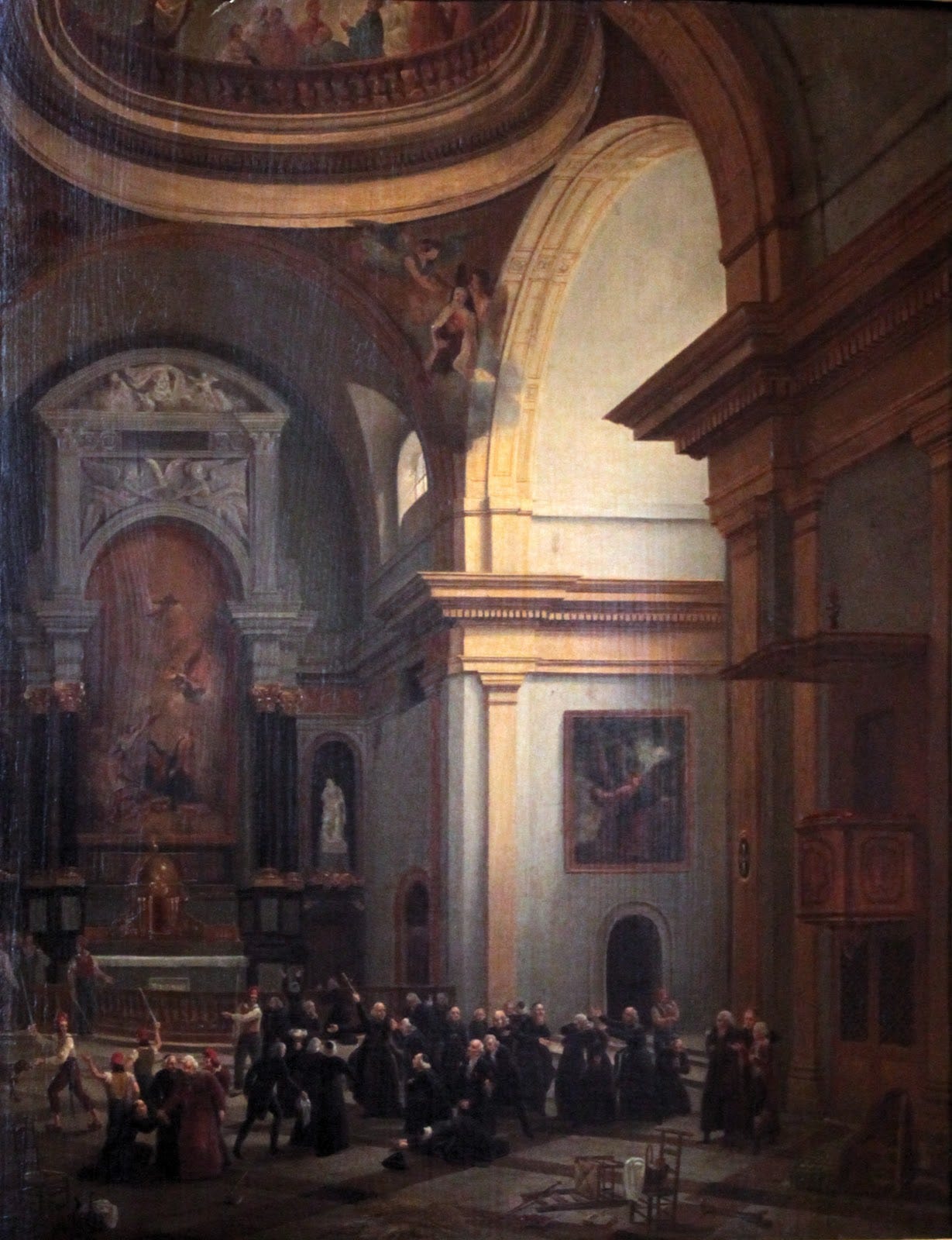Great political theorists visit my class
And students for the most part sit silently and look bewildered (a Part II to yesterday's paean to lectures)
[This is the image on front page of my syllabus for the course. The painting is Massacre des Carmes, which depicts a revolutionary mob murdering nearly 200 priests in a convent that had been converted in the days of the French Revolution into a prison]
I have been teaching a course on conservative thought for three or four years now. The full course ti…




